Jimmy L. writes in the essay below about a distant connection between Telemachus and Nausicaa.
Hu Jintao said, “Diversity in the world is a basic characteristic of human society, and also the key condition for a lively and dynamic world as we see today” (Brainyquotes). People from different places are diverse, but their diversity should not prevent them from gaining success in life. Hu Jintao is the current leader of the people of China that has overcome his diversity and key conditions. His mother died when he was a young boy and his family was poor. However, using his abilities and talents Hu Jintao was able to gain his success in life. In the epic poem, The Odyssey, written by Homer, the characters Telemachus and Nausicaa were depicted as two faithful persons, from two different places with a similar aspiration to become successful. Telemachus of Ithaca grows up to be an immature young man that has yet to become like his father. Nausicaa of Phaeacia grows up to become a proper, well-educated, and well-mannered young woman. The way they grew up in their cities can influence their behaviors. More specifically, Telemachus and Nausicaa are two young adults from two different leaders in The Odyssey that want to empower themselves for the rest of their life. Although Homer’s The Odyssey presents the theme of diversity and perseverance through Telemachus and Nausicaa, their actions, their relationships between their parents, and their role in their own society shows that there is a distinct connection between them.
To begin with, when Homer showed Telemachus and Nausicaa in The Odyssey, he first gave the clue by showing the behavior and actions that they commonly expressed throughout their own scenes. These exemplified the big difference between how the two characters acted towards other characters. In book II, Telemachus had called an assembly to discuss about his suitors. However, from this event it is certain that he does not have good leadership skills and qualities. For example, when people usually call a meeting, they maintain order by first telling the purpose of the meeting. Telemachus never did speak up and fully take charge which showed the lack of leadership. Also, throughout Telemachus’s journey he was very dependent of Athena’s help. Telemachus said, “Mentor, how can I go? In subtleties of of speech I am not practised. Shyness is fitting in a youth when questioning his elders” (Palmer 19). Telemachus even admits his lack is speech and also admits himself as being shy person. However, the fear of confronting people, and the lack of social skills does not drive him away. Telemachus's behavior shows that he will do whatever it takes to gain information of his father Odysseus. On the other hand, Nausicaa is a very outgoing young adult. For example, when she met Odysseus she was very open and forward towards him. She knew how to formally introduce herself and made sure that she exemplified leadership skills. When Nausicaa met with Odysseus she stated, “The Phaecians own this city and this land, and I am the daughter of generous Alcinous, on whom might and power of the Phaecians rests” (Palmer 58). When she said that, she knew that she could make an impression on Odysseus, as well as make herself seem on a higher level. Furthermore, the behaviors and actions that Telemachus and Nausicaa showed, exemplified the big difference between them, and showed how important their emotions and attitudes on others affect their self-individuality.
Along with that, not only do the behaviors and actions showed the difference between them, but also the relationships between their parents are important to who they are as characters. Telemachus, for instance, seemed very controlling toward his mother Penelope. Telemachus stated, “Nay, seek your chamber and attend matters of your own,-the loom, the distaff,-and bid the women ply their tasks. Words are for men, for all, especially for me; for power within this house rests here” (Palmer 7). Telemachus acted very bossy toward his mother, and very disrespectful. However, Penelope encouraged that attitude, because Telemachus is learning to take role. After Telemachus spoke, the narrator stated, “Amazed, she turned to her own room again, for the wise saying of her son she laid to heart” (Palmer 7). Penelope likes the way her son is acting, because she may believe that it will help him as a good leader. This is not the case, however. Also, Telemachus has no relationship with his father. There was nobody there to teach him how to mature into a man. As a result, Telemachus was never taught to act like a good leader. On the contrary, Nausicaa has the whole concept of leadership familiarized because she has both parents. Nausicaa’s relationship between her father helps her to become a good leader as well as a good person. When Odysseus told King Alcinous about Nausicaa’s aid, her father was very specific about it. King Alcinous stated, “Stranger, in this my child behaved not rightly, in that she did not bring you hither with her maids.Yet it was she from whom you first sought aid” (Palmer 67). Odysseus had then explained to him that her daughter did in fact did everything right, but from that quote King Alcinous wanted to make sure her daughter did the right duty. Impressed by Odysseus, King Alcinous wanted him to marry Nausicaa; wanting the best husband for her. Additionally, the reason why Nausicaa is a matured young adult is because of her father. The reason why Telemachus not a matured young adult is because his father Odysseus was never there for him. The influence of the characters’ parents also influence who they are as individuals.
Last but not least, even though Telemachus and Nausicaa had different parental relationships, their role in society is what is comparable. Initially, when Telemachus was with the suitors, he knew that he had to be hospitable and nice to them. Likewise, when Nausicaa met Odysseus, she ordered to maids to take care of him, and if not she would take care of him. The common trait they both showed was the morality that the Greeks had. Also, Telemachus is a soon-to-be leader of Ithaca when his father is no longer there. Similarly, Nausicaa is a future princess of Phaeacia. When both have the responsibility to take leadership on their own people, they will fully learn the importance of having strong social capabilities. Telemachus will take all of the expectation among his people, which will better him as a leader. Nausicaa will also have expectations among her Phaecians to help guide her people and to show that she was raised right by her father. The role that the two characters have is what will ultimately benefit them in the long-term.
All in all, their actions show self-individuality, the relationships between their parents show who they are as people, and their role in their own society show that it will benefit them in the long-term. When Homer showed who the characters really were, it created a connection between characters. It shows that although Telemachus may have not matured, there is hope in succeeding his father, and becoming like Nausicaa. Nausicaa could be a possible role-model for Telemachus because she has leadership qualities. Although Telemachus and Nausicaa have the ability to empower themselves for life, overcoming their diversity and persevering will be the key to their success in life.
Works Cited
"Hu Jintao Quotes." BrainyQuote. Xplore, n.d. Web. 14 Apr. 2013.
Homer, Robert Squillace, and G. H. Palmer. The Odyssey. New York: Barnes & Noble, 2003. Print.
Hu Jintao said, “Diversity in the world is a basic characteristic of human society, and also the key condition for a lively and dynamic world as we see today” (Brainyquotes). People from different places are diverse, but their diversity should not prevent them from gaining success in life. Hu Jintao is the current leader of the people of China that has overcome his diversity and key conditions. His mother died when he was a young boy and his family was poor. However, using his abilities and talents Hu Jintao was able to gain his success in life. In the epic poem, The Odyssey, written by Homer, the characters Telemachus and Nausicaa were depicted as two faithful persons, from two different places with a similar aspiration to become successful. Telemachus of Ithaca grows up to be an immature young man that has yet to become like his father. Nausicaa of Phaeacia grows up to become a proper, well-educated, and well-mannered young woman. The way they grew up in their cities can influence their behaviors. More specifically, Telemachus and Nausicaa are two young adults from two different leaders in The Odyssey that want to empower themselves for the rest of their life. Although Homer’s The Odyssey presents the theme of diversity and perseverance through Telemachus and Nausicaa, their actions, their relationships between their parents, and their role in their own society shows that there is a distinct connection between them.
To begin with, when Homer showed Telemachus and Nausicaa in The Odyssey, he first gave the clue by showing the behavior and actions that they commonly expressed throughout their own scenes. These exemplified the big difference between how the two characters acted towards other characters. In book II, Telemachus had called an assembly to discuss about his suitors. However, from this event it is certain that he does not have good leadership skills and qualities. For example, when people usually call a meeting, they maintain order by first telling the purpose of the meeting. Telemachus never did speak up and fully take charge which showed the lack of leadership. Also, throughout Telemachus’s journey he was very dependent of Athena’s help. Telemachus said, “Mentor, how can I go? In subtleties of of speech I am not practised. Shyness is fitting in a youth when questioning his elders” (Palmer 19). Telemachus even admits his lack is speech and also admits himself as being shy person. However, the fear of confronting people, and the lack of social skills does not drive him away. Telemachus's behavior shows that he will do whatever it takes to gain information of his father Odysseus. On the other hand, Nausicaa is a very outgoing young adult. For example, when she met Odysseus she was very open and forward towards him. She knew how to formally introduce herself and made sure that she exemplified leadership skills. When Nausicaa met with Odysseus she stated, “The Phaecians own this city and this land, and I am the daughter of generous Alcinous, on whom might and power of the Phaecians rests” (Palmer 58). When she said that, she knew that she could make an impression on Odysseus, as well as make herself seem on a higher level. Furthermore, the behaviors and actions that Telemachus and Nausicaa showed, exemplified the big difference between them, and showed how important their emotions and attitudes on others affect their self-individuality.
Along with that, not only do the behaviors and actions showed the difference between them, but also the relationships between their parents are important to who they are as characters. Telemachus, for instance, seemed very controlling toward his mother Penelope. Telemachus stated, “Nay, seek your chamber and attend matters of your own,-the loom, the distaff,-and bid the women ply their tasks. Words are for men, for all, especially for me; for power within this house rests here” (Palmer 7). Telemachus acted very bossy toward his mother, and very disrespectful. However, Penelope encouraged that attitude, because Telemachus is learning to take role. After Telemachus spoke, the narrator stated, “Amazed, she turned to her own room again, for the wise saying of her son she laid to heart” (Palmer 7). Penelope likes the way her son is acting, because she may believe that it will help him as a good leader. This is not the case, however. Also, Telemachus has no relationship with his father. There was nobody there to teach him how to mature into a man. As a result, Telemachus was never taught to act like a good leader. On the contrary, Nausicaa has the whole concept of leadership familiarized because she has both parents. Nausicaa’s relationship between her father helps her to become a good leader as well as a good person. When Odysseus told King Alcinous about Nausicaa’s aid, her father was very specific about it. King Alcinous stated, “Stranger, in this my child behaved not rightly, in that she did not bring you hither with her maids.Yet it was she from whom you first sought aid” (Palmer 67). Odysseus had then explained to him that her daughter did in fact did everything right, but from that quote King Alcinous wanted to make sure her daughter did the right duty. Impressed by Odysseus, King Alcinous wanted him to marry Nausicaa; wanting the best husband for her. Additionally, the reason why Nausicaa is a matured young adult is because of her father. The reason why Telemachus not a matured young adult is because his father Odysseus was never there for him. The influence of the characters’ parents also influence who they are as individuals.
Last but not least, even though Telemachus and Nausicaa had different parental relationships, their role in society is what is comparable. Initially, when Telemachus was with the suitors, he knew that he had to be hospitable and nice to them. Likewise, when Nausicaa met Odysseus, she ordered to maids to take care of him, and if not she would take care of him. The common trait they both showed was the morality that the Greeks had. Also, Telemachus is a soon-to-be leader of Ithaca when his father is no longer there. Similarly, Nausicaa is a future princess of Phaeacia. When both have the responsibility to take leadership on their own people, they will fully learn the importance of having strong social capabilities. Telemachus will take all of the expectation among his people, which will better him as a leader. Nausicaa will also have expectations among her Phaecians to help guide her people and to show that she was raised right by her father. The role that the two characters have is what will ultimately benefit them in the long-term.
All in all, their actions show self-individuality, the relationships between their parents show who they are as people, and their role in their own society show that it will benefit them in the long-term. When Homer showed who the characters really were, it created a connection between characters. It shows that although Telemachus may have not matured, there is hope in succeeding his father, and becoming like Nausicaa. Nausicaa could be a possible role-model for Telemachus because she has leadership qualities. Although Telemachus and Nausicaa have the ability to empower themselves for life, overcoming their diversity and persevering will be the key to their success in life.
Works Cited
"Hu Jintao Quotes." BrainyQuote. Xplore, n.d. Web. 14 Apr. 2013.
Homer, Robert Squillace, and G. H. Palmer. The Odyssey. New York: Barnes & Noble, 2003. Print.
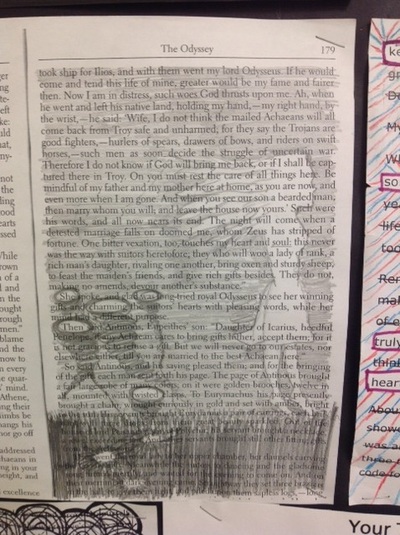
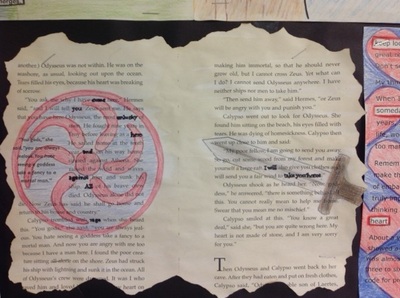
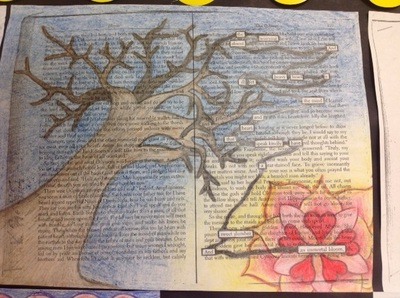
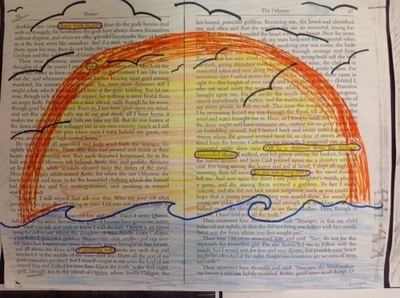
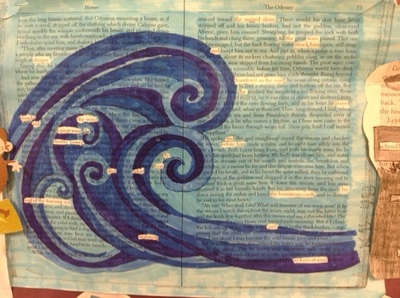
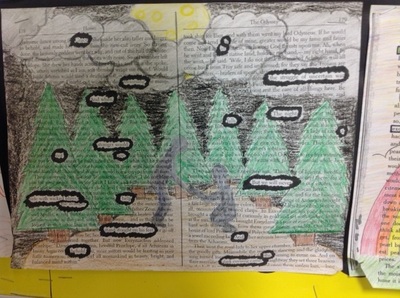
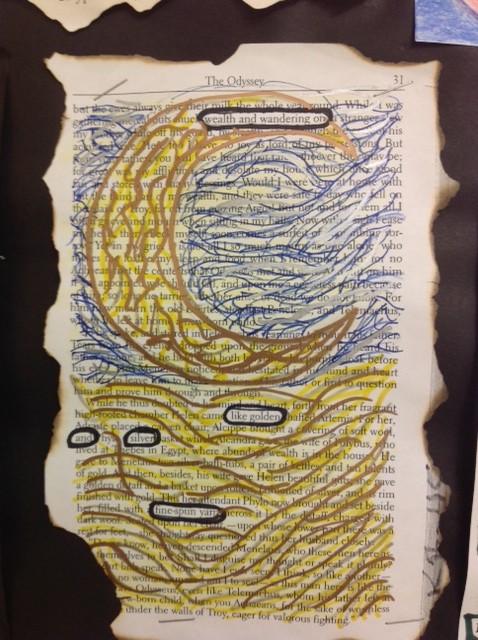
 RSS Feed
RSS Feed